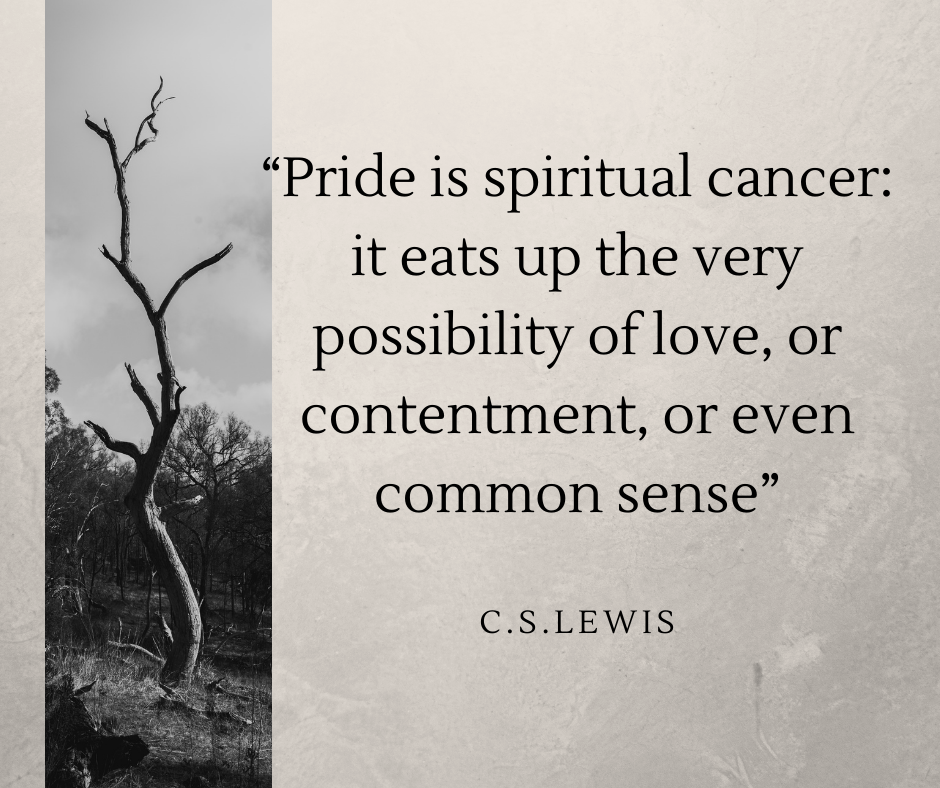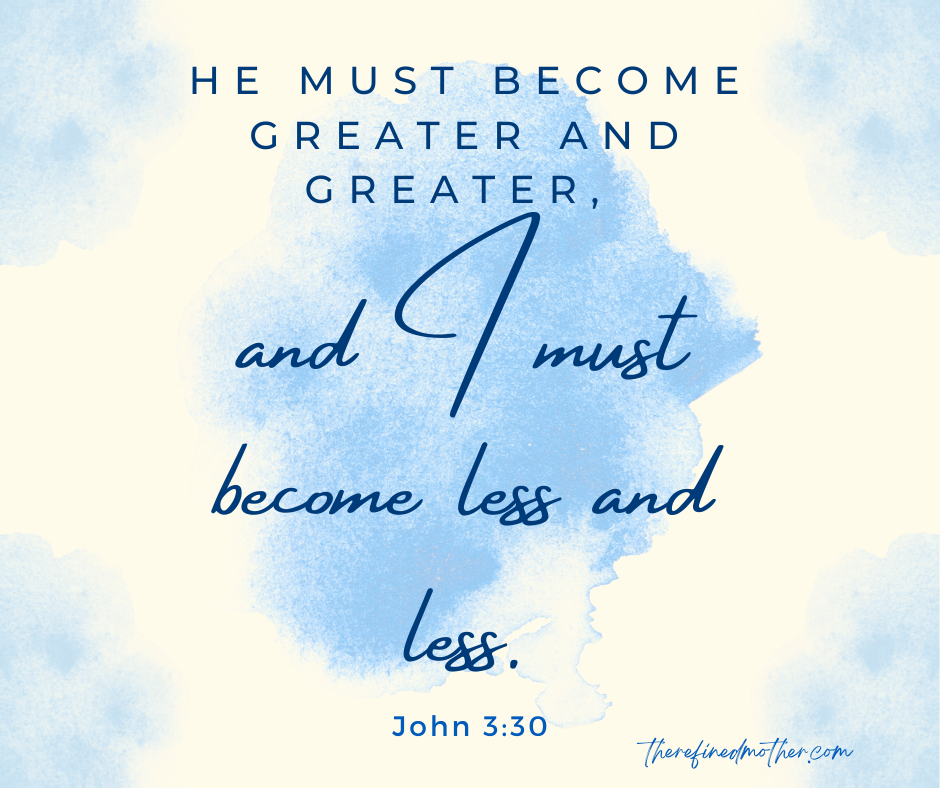Overcoming Overwhelm Step 4 – Sinful attitudes revealed
Slowly, as I spent time at The Lord’s feet, talking through my struggles and difficulties with Him, He began to reveal sinful attitudes I was wearing and wielding.
I was not expecting this revelation. It seemed, to me, that everyone around me was in need of alteration, and my circumstances needed changing. However, I could not deny what he showed me.
I had a habit of “looking for the hole, instead of the doughnut”. Since that probably makes no sense, let me give some examples to illustrate:
If I came in from sorting macadamia nuts out in our shed, I would look at the washing that had been hung on the line and see that the jeans had one leg tucked inside another. Impatiently I would correct it, and then march into the house and complain that the washing had not been hung up correctly. I failed to notice that for a change someone had hung it up for me. And my focus on the incorrectly hung washing so consumed my mind, that I did not notice the swept verandah, or the unpacked dishwasher.
If my husband stayed home with the children while I went to a church event, I would get back and notice that they weren’t yet in their pyjamas, or that they hadn’t read a story. I failed to notice that he had been playing games with them and had built a fire in the fireplace and that they had enjoyed wonderful quality time with him.
And I could go on. The simplest examples would be a sigh, an exasperated look, a rolling of the eyes. I was not looking at the sweet decadence and blessing of the “doughnut” but rather at that tiny tasteless, nothingness of a “hole”.
Perhaps you’ve caught yourself in these moments, too…”Put his arms in the baby grow first!” “That’s not enough water for their bath!”, “Did you forget to wipe the sink?”
A critical mindset
I was overwhelmed partly because I had too much on my plate, and overwhelmed because of my faulty thought patterns. On an average day, I was juggling most things myself. I didn’t readily have help all the time, but when it did happen, instead of being thankful or appreciative, I jumped straight to the critical. The sharp. The demeaning. You can imagine how hard this was for my husband. It didn’t make him want to help me. And most of the time, once the words were out of my mouth, I would realise how nasty and ungrateful I was being, but the damage was already done.
Why would I do this? When all I wanted and needed was help, why would I react in this way. On reflection, I have identified a number of thought patterns and mindsets that feed this kind of critical thinking.
Faulty thought patterns
Pride
The basis of all sin of whatever kind is pride.
Elisabeth Elliott
As we rush from one thing to another in our busy, overwhelming days, we begin to feel that we alone can do all these things. Although we are frantic and overburdened, we can start to wear our “busyness” as a badge. We believe that no one else could do it quite like us. At the very time that we most need help, we begin to pride our self sufficiency. And scorn those who don’t do it “like us”. It’s a peculiar thing.
Thomas A. Tarrants, III of the C.S. Lewis Institute, in his article on Pride and Humility states that,
“Pride can be summarized as an attitude of self-sufficiency, self-importance, and self-exaltation in relation to God. Toward others, it is an attitude of contempt and indifference.”
Can you see how our critical reactions exemplify an attitude of contempt and indifference?
There are over 100 references to pride in The Bible. Jesus taught us lessons in humility. We can so easily see pride in the lives of others, yet we struggle to see this sin in our own lives. We will only become aware of it by asking The Lord to reveal it to us, or by asking those around us to honestly tell us what they see in us that looks like pride. Because we are sinners, it would be safe to assume this is a sin we struggle with in some way, and to pray for a humble spirit.
“Pride goes before destruction, and a haughty spirit before a fall”
(Proverbs 16:18)

Self pity
Self pity is something we tend to fall into quite naturally when life is difficult. It seems so “unfair”. “Why do I have to do it all?” “Well, if I don’t do it, certainly no one else will!” “Nobody else will do it properly!”
These are the mostly unspoken thoughts that swirl deafeningly around in our brains. Poor me. My life is just so tough. No one understands.
“Self-pity is a death that has no resurrection, a sinkhole from which no rescuing hand can drag you because you have chosen to sink.”
Elisabeth Elliott
We are so busy looking inwards and nursing our little (or big!) “woe is me” thoughts, that we are incapable of lifting our eyes outwards to see the truth of the situation. That The Lord has placed us purposefully right where we are, and He is with us and for us. We have allowed ourselves to become great and The Lord to become less.

A need to be in control
The problem with the feeling of being overwhelmed, is that we constantly feel like everything is out of control. We can’t seem to get a handle on things. Everything spins around us dizzyingly and we feel inadequate to cope. As a result, we grab hold of any tiny fragment of control within our reach. and since we aren’t managing to control our circumstances or ourselves, we unfortunately can attempt to control the gentle and well meaning people around us, mostly our husbands and often even our children.
I even went through a patch of asking my husband, every morning, what his plans were for the day. Because my list of things to do was looming over me like a skyscraper, I wanted to be sure he was going to be running all day, too. My husband, never feeling the need to bend to my demands, was suitably vague and relaxed as to infuriate me. He could never understand why I needed to have his day planned as well as mine! How right he was. Didn’t I already have enough on my plate? But If I could control what he was doing, it would give me some sort of feeling of accomplishment.
Trying to control my schedule or timetable, (which naturally is impossible with children who operate on their own schedule) was something I strove for. Having control can give a sense of security and safety. God’s design, however, is that HE is in control, and my unattained attempts to be in control left me feeling desperate and irritable.
Of course, I did not realise any of this at the time. I did not realise my control freakish behaviours. And as soon as The Lord revealed my tendencies, and the damage they were doing, I prayerfully surrendered and made changes. Do you recognise any of these tendencies in yourself? Submit to Him.
Trust in the Lord with all your heart and lean not on your own understanding; in all your ways submit to him, and he will make your paths straight.
Proverbs 3: 5-6
Fear
Fear is a massive topic which I will cover separately,Fear but it is important to realise that an underlying thought pattern in our critical behaviour patterns is fear. We are afraid that we will never catch up, afraid that we are failing and afraid that we are damaging our children and relationships because we feel that we are constantly falling short. Ironically, this fear, if we hold onto it, is going to cause exactly all the things we are fearing.
When I am afraid, I put my trust in you.
Psalm 56:3
Guilt
All of these confusing emotions around our fears and failures lead us to be most critical of ourselves. We notice each failing of our own. Each moment we handled badly. Each critical word we let slip. And we feel enormous guilt for our failings. And then instead of pausing to recognise these emotions…we deflect, by criticising someone else. The load of self criticism and “mom-guilt” we carry around is so huge as to be enough to overwhelm us all on it’s own. We see our gaps, but we fail to see our sweet moments. Of which there are many.
How to savour the doughnut

GRATITUDE is the solution. Stop and lift your inward looking eyes. Look up! Thank God that He knows you fall short and loves you anyway. Thank Him for His GRACE…that He so freely gives you, so that you can extend it to others. Thank God for your home. Thank Him for your children. Thank Him for the mess. Thank Him for your husband. Thank Him for your purpose. Thank Him for your capabilities. Thank Him that He chose you for this calling. And ask Him to help you to change your thought patterns, to a default pattern of thankfulness.
I had to take every thought captive, and as I approached the house, the bathroom, the kitchen, I would say to myself “Look for the doughnut, not the hole”. Not only did I look for the doughnut in others but I began to look for the doughnut in me. I noticed that I did do some kind and generous things in the day. My failings fell into perspective.
Leaning on The Lord, I managed to create a healthier, more affirming, God honouring habit. I fail once in a while, but in my human brokenness, with the help of The Holy Spirit, I have come out of the critical tendencies and the underlying thought patterns.
We take captive every thought to make it obedient to Christ
2 Corinthians 10:5
Dealing with Sin and overcoming overwhelm
As it turns out: dealing with my sin helped me conquer “overwhelm”.
Shelving my pride, tucking away my self pity, curbing my need to control, and putting aside fear, led to a humble, thankful, courageous surrender – to The One who holds it all in His hands. Sin always stands in the way of Kingdom progress. Dealing with sin attitudes, helped me in overcoming my overwhelm. And I pray it helps you, too.
You can find this post in podcast form:






4 thoughts on “Look for the doughnut (instead of the hole)”
So much truth in this. What a wonderful reminder.
Happy to hear!
Thanks Kay! This resonates with me!
Thanks, Barbs! Glad I’m not the only one 🙂